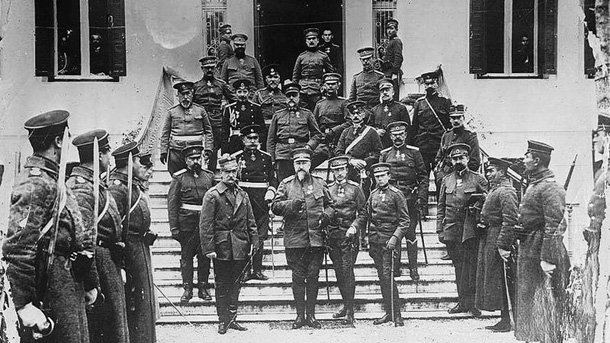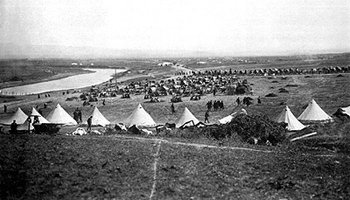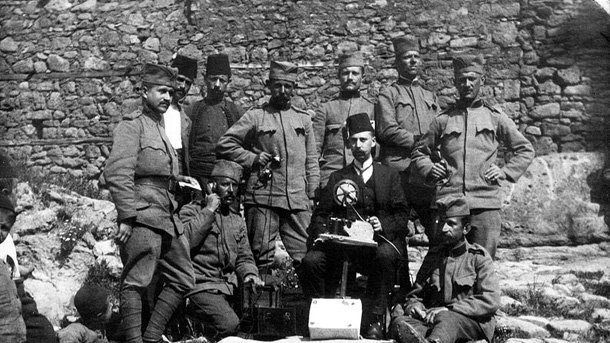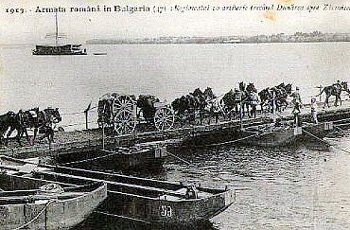
On June 16, the 100th anniversary since the start of the Second Balkan War was marked. This war was one of the most painful pages in modern Bulgarian history. Bulgaria started the war against Serbia, Greece and Montenegro, as previously the countries were allies against the Ottoman Empire in the First Balkan War. Later Romania and the Ottoman Empire joined forces against Bulgaria. The main reason for the start of the conflict was the dispute between the former allies, regarding territories freed from Ottoman rule. European powers also did little for resolving the Balkan disputes.
Significant gaps in Bulgarian diplomacy contributed to the negative outcome, as well. Bulgaria took part in the First Balkan War with the largest army in the alliance against the Ottoman Empire, but joined the war without solid agreements with its allies over the future of the freed territories. There was only an agreement with Serbia over the territory of Macedonia, but later Belgrade rejected it. In the First Balkan War the Bulgarian army fought on the main front in the direction of Constantinople and the

© Photo: archive
Straits. This enabled Serbia and Greece to take over more land in Macedonia. The two countries soon decided to stick to the principle of actual occupation and concluded a secret alliance against Bulgaria. In the former allies feelings of patriotism and belligerence sparked. Bulgaria was not an exception and was in the grip of militant euphoria. Romania, in turn, decided to claim a territory in northeastern Bulgaria, as compensation for the Bulgarian expansion in Macedonia. The Bulgarian government agreed to give the city of Silistra to Bucharest but still Romania decided in case of war to intervene on Serbian and Greek side. The Ottoman Empire closely followed the tense situation, waiting for a chance to win back lands in Eastern Thrace, especially Edirne. Bulgaria also missed the opportunity for Russian mediation. Russian Foreign Minister Sazonov insisted that Bulgaria should make some compromises but Bulgarian King Ferdinand did not want to make any compromises and continued to insist that Thessaloniki and Western Macedonia should be part of Bulgaria, despite they were occupied by Greek and Serbian forces. According to Academician Georgi Markov, Ferdinand wanted the Bulgarian national issue resolved through the creation of a country with borders similar to those defined in the Treaty of San Stefano.

© Photo: archive
“In this task he found support from Bulgarian politicians like Dr. Stoyan Danev, chairman of the National Assembly, who later became prime minister. Bulgarian Army generals led by Assistant Chief General Mihail Savov also supported the king. They decided not to retreat a single step. At that time a large coalition against Bulgaria began to emerge on the Balkans. This coalition was waiting for an excuse to start the Second Balkan War. And, unfortunately, Tsar Ferdinand, by a verbal order to gen. Mihail Savov on June 16, 1913 began pushing away the former allies from the Bulgarian lands in Macedonia, without the knowledge of the government. The government later stopped the attack. The former allies of Bulgaria, however, used this strategic mistake. Bulgaria should have waited instead of resorting to the strategy of ‘All or nothing, now or never."

© Photo: archive
Prime Minister Stoyan Danev ordered attacks to stop on June 18th but after a few days Serbia, Greece and Montenegro started a counter attack and formally declared war on Bulgaria. From a modern perspective, it is difficult to say whether peace could have been maintained. The situation was very similar to the eve of World War I, when the two hostile coalitions were both preparing offensive operations, and the question of who first declared war is often viewed as irrelevant. Objectively speaking, the Second Balkan War could have hardly been avoided. The situation was further complicated by disagreement among leaders in Sofia and the refusal of Tsar Ferdinand to make compromises. On June 28, Romania joined the war against Bulgaria. A day later Turkey also declared war on Bulgaria.
This war turned into a national catastrophe and Bulgaria lost a number of territories, although it kept territories freed during the First Balkan War. During the Second Balkan War, there were many acts of selflessness and a number of victories for Bulgaria. This is the reason why today, 100 years later, Bulgarians still remember with gratitude the heroism of Bulgarian soldiers and the heavy sacrifices made by the Bulgarian people.
English version: Alexander Markov
The Boyana Church will be an attractive center for the delegates of the 47th session of the UNESCO World Heritage Committee , who will gather in Sofia in July this year. The Church of St. Nicholas and St. Panteleimon is one of the..
The Nikola Vaptsarov Naval Academy in Varna has marked 144 years since its founding. A period in which the educational institution has followed the trends for highly specialized training of specialists in various professional fields..
Quiet among the Lyulin Mountain slopes, the Klisura Monastery of St. Petka is marked by mystery and radiates spirituality. It is located only 7 km from the resort town of Bankya, near the village of Klisura. Winter is the time when the holy monastery..
His Eminence Metropolitan Anthony of Western and Central Europe and BNR Director General Milen Mitev signed a Memorandum of Cooperation at the headquarters..
On January 17, the Orthodox Church honors the memory of St. Anthony the Great – a zealous advocate of Christianity. At an advanced age, he took part..
The only chapel in the country to bear the names of Saints Anthony and Atha nasius is in Sandanski, and its consecration will be performed by His..

+359 2 9336 661
